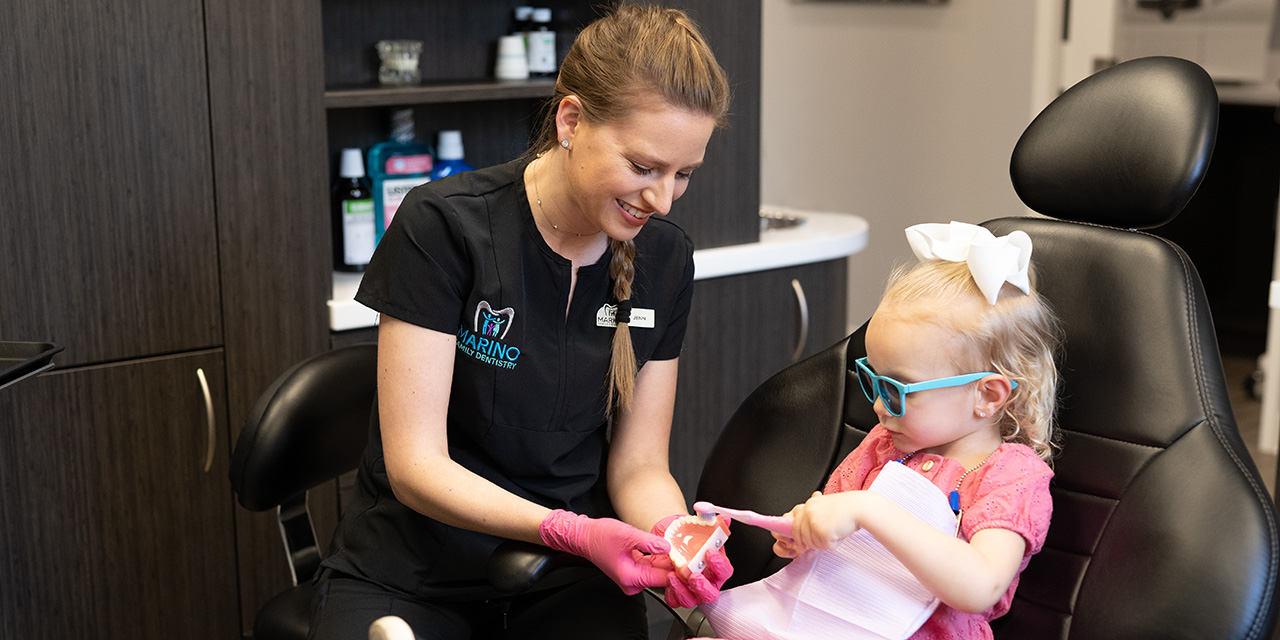Discover the Advantages of Veneers for Your Dream Smile in Washington DC
Discover the Advantages of Veneers for Your Dream Smile in Washington DC
Blog Article
Typical Concerns About Oral Veneers Addressed
Dental veneers have come to be a progressively popular alternative for those looking to enhance their smiles, yet lots of individuals stay uncertain about numerous facets of their use. As we discover these common queries, it becomes essential to consider not only the advantages but additionally the effects of opting for oral veneers in quest of a much more positive appearance.
What Are Oral Veneers?
Dental veneers are slim, tailor-made coverings crafted from porcelain or composite resin that are designed to cover the front surface area of teeth. These dental prosthetics serve both functional and visual purposes, supplying a remedy for different oral blemishes, consisting of staining, chips, voids, and imbalance. By adhering to the teeth, veneers can considerably boost the overall appearance of a smile, creating a more uniform and eye-catching appearance.
Porcelain veneers are especially preferred for their natural translucency and stain resistance, making them an ideal selection for people looking for resilient results. In comparison, composite material veneers are usually more economical and can be applied in a solitary go to, but they may not provide the same resilience as porcelain choices.
The decision to choose for dental veneers usually comes from a desire for aesthetic enhancement, but individuals need to additionally take into consideration elements such as the durability of the product, maintenance demands, and the potential demand for tooth reduction (Porcelain Veneers Washington DC). Eventually, dental veneers represent a functional and efficient solution for achieving a glowing smile, satisfying specific aesthetic demands while advertising self-confidence and self-worth
Just How Are Veneers Applied?
The application process for veneers needs mindful planning and precision to ensure ideal results. The procedure normally begins with a detailed appointment, where the dentist reviews the individual's dental wellness, talks about wanted results, and determines the appropriate kind of veneers, whether porcelain or composite material.
As soon as the treatment plan is established, the dental expert prepares the teeth by eliminating a thin layer of enamel, normally regarding 0.5 mm to 1 mm, to suit the veneer. This step is important as it makes sure a proper fit and protects against the veneers from showing up bulky - Dental Veneers. After prep work, impressions of the teeth are required to develop personalized veneers that match the client's special dental framework and aesthetic preferences
While the permanent veneers are being made in an oral lab, momentary veneers may be placed to protect the prepared teeth. Once the long-term veneers are ready, the dental expert will carefully bond them to the teeth using a solid dental adhesive.
What Are the Advantages?
In addition, veneers are known for their durability and resistance to tarnishing compared to all-natural teeth. Made from premium materials such as pop over to this site porcelain or composite resin, they can maintain their appearance for many years with appropriate treatment. This durability makes them a sensible financial investment in one's oral look.
In addition to visual renovations, veneers can also contribute to boosted dental wellness. By covering damaged or damaged teeth, they can give added assistance and security, assisting to stop more degeneration or damage. This safety element can lower the need for extra extensive oral procedures in the future.

Exactly How Long Do They Last?
With correct treatment and maintenance, oral veneers can last anywhere from 10 to 15 years, making them a lasting service for boosting one's smile. The long life of veneers mainly depends on the material utilized, the quality of the initial placement, and the individual's adherence to oral health techniques.
Porcelain veneers are understood for their durability and resistance to staining, generally lasting closer to the 15-year mark when looked after appropriately. Compound veneers, while more budget friendly, may require replacement quicker, typically within 5 to 10 years because of their vulnerability to use and staining.

Additionally, wearing a mouthguard throughout sports or nighttime can provide added protection. Inevitably, while veneers offer a considerable visual improvement, their durability is dramatically affected by these details the commitment to appropriate dental treatment and routine consultations with an oral specialist.
Exist Any Dangers?
Considering the transformative results of oral veneers, it is very important to recognize the prospective threats related to their application. While veneers can improve the look of teeth, the treatment includes the removal of a thin layer of enamel, which can increase tooth sensitivity and vulnerability to decay.
One significant threat is the possibility of inappropriate placement or fitting, causing pain, bite misalignment, or even damage to the underlying tooth framework. Additionally, if the veneers are not preserved correctly, they can become stained or chipped in time, requiring replacement.
Individuals might additionally experience allergies to the products used in the veneers, particularly if they have level of sensitivities to certain dental composites. Moreover, while veneers are resilient, they are not undestroyable; too much pressure from grinding or clinching can bring about cracks.
It is vital for people to speak with a qualified dental professional to review their individual risks our website and to adhere to aftercare guidelines faithfully. By recognizing these dangers, individuals can make informed choices regarding their dental veneer treatment and guarantee the durability and success of their improvements.
Verdict
In summary, dental veneers represent a beneficial cosmetic remedy for enhancing smiles, with considerations concerning their application, advantages, durability, and connected risks. Ultimately, informed decision-making pertaining to dental veneers can lead to acceptable visual end results and enhanced dental health.
Oral veneers are thin, custom-made coverings crafted from porcelain or composite resin that are developed to cover the front surface area of teeth. After prep work, impacts of the teeth are taken to create customized veneers that match the person's special dental framework and aesthetic preferences.
While the long-term veneers are being produced in a dental laboratory, momentary veneers may be put to safeguard the prepared teeth. As soon as the permanent veneers are ready, the dental practitioner will carefully bond them to the teeth utilizing a strong dental adhesive. Ultimately, notified decision-making regarding oral veneers can lead to adequate aesthetic end results and improved dental health and wellness.
Report this page